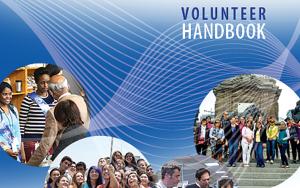Moving to Washington DC with the World Bank Group? Whether you are planning your move to DC, have just arrived or have been in the US for years, here is some important practical information to help guide you through the relocation process as a WBG spouse/partner. For detailed information, read our Welcoming Handbook, attend our information seminars and welcoming events posted on our Activities page. Join our WBF Buddy Whatsapp Group for Newcomers to DC for practical information, tips and support in real time, anytime. Send an email to wbfnwelcoming@worldbank.org
Support—Headquarters—Home & Car Insurance
When you arrive in the US for the first time, you are considered to not have a traceable driver's record, making it very expensive and difficult to buy car insurance. Some WBG families have had good experiences with companies such as AAA, Allstate, Erie and Nationwide.
It is important that you also acquire home insurance to protect your family and your valuables in case of fire, flooding, or a natural disaster, even if you are renting the house.
Homeowners’ Insurance and Tenants' Package Policies
Homeowners' Insurance (also known as Hazard Insurance) and tenants' package policies insure homes and belongings against theft or damage. Routine repairs, such as installing a new roof or fixing a broken appliance, are not covered by such policies. Theft and damage from fires or accidents are covered. Flood damage is not usually covered – you must purchase flood insurance separately. If you take out a mortgage to buy your home, you are required to hold homeowners' insurance. This protects the lender up to the amount borrowed. Some leases require tenants' packages.
What you should know about your homeowners' insurance or tenants' package policy:
- Name and telephone number of your insurance agent and insurance company
- Policy number
- Location of policy
- Extent of coverage
- Amount of premium and date on which the premium is due
- Deductible amount
Note: Too many small claims may result in an increase in premiums charged or a complete cancellation of the insurance coverage. Remember that the value of hazard insurance is protection in the event of a catastrophic loss. It may be to your advantage to pay for small repairs yourself and save your insurance claims for large losses.
In addition to covering property damage, homeowners' policies often protect the homeowner or tenant against losses suffered by third parties. If, for example, a visitor to your home were injured because of negligence on your part, your homeowners' policy would cover the medical and other expenses incurred by the injured person.
Tenants' packages often include protection against liability claims. This means that a tenant held responsible for extensive damage to the rented property would be partially or fully reimbursed by the insurance company for the damage.
All insurance policies include a deductible charge, a small amount that is not covered by the policy. A deductible of $250 means that the insurance company will not cover the first $250 of damage. Losses that are less than the deductible thus need not be reported to the insurance company. In case of an accident or theft causing losses greater than the deductible amount, call your insurance agent to inform them about the loss. If the loss is small, the insurance company may simply reimburse you for the loss without visiting your home. If the loss is substantial, a representative of the insurance company may visit your home to assess the damage.
Car/Automobile insurance
Car Insurance usually covers:
- Liability for damage to property and injuries to other people due to accidents in which you are involved
- Damage to your automobile if you are at fault in an accident, and
- Damage to your automobile caused by theft, fire, vandalism or other causes
Vehicle insurance is required by law in Maryland, Virginia, and the District of Columbia. In most states, the minimum amount of coverage required by law is $25,000. In case you are involved in litigation, $25,000 is not adequate coverage. Most people recommend a minimum of $100,000 to $300,000. It is advisable to obtain a letter from your car insurance company in your previous country of residence, stating that you were a client of good standing. This would help in obtaining a more favorable premium from a US insurance company.
Car insurance is sold by insurance agents and brokers. Consumer Checkbook, available at most public libraries and in the WBFN office, compares the cost and services of large nationwide automobile insurers. You may also want to consult colleagues and friends about their experiences with their insurance companies.
Once you purchase your insurance, your insurance company will give you a card with the name of your agent and the number of your policy on it. Carry this card with you or keep it in the car at all times, so that you will have it in case of an automobile accident.
What you should know about your automobile insurance policy:
- Name and telephone number of your insurance agent and insurance company
- Policy number
- Location of policy
- Extent of coverage
- Amount of premium and date on which the premium is due
- Deductible amount
When you take out multiple insurances (car, homeowners’, etc.) with the same insurance company, you will be able to receive a discount for the total costs. You might want to mention the “umbrella policy”. It provides additional liability coverage beyond homeowners and car insurance, protecting you from lawsuits and major claims.
Insurance companies are regulated by state agencies. If you have a dispute with an insurance company, you may file a complaint with the agency in your state:
Maryland–MD Insurance Administration
525 St. Paul Place
Baltimore, MD 21202
1-410-468-2000
www.mdinsurance.state.md.us
Virginia–Commissioner of Insurance
700 Jefferson Building
P.O. Box 1157
Richmond, VA 23219
1-877-310-6560
www.scc.virginia.gov/division/boi
District of Columbia–Superintendent of Insurance
810 First Street, N.E., Suite 701
Washington, DC 20002
202-727-8000
www.disb.dc.gov






